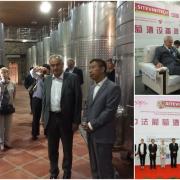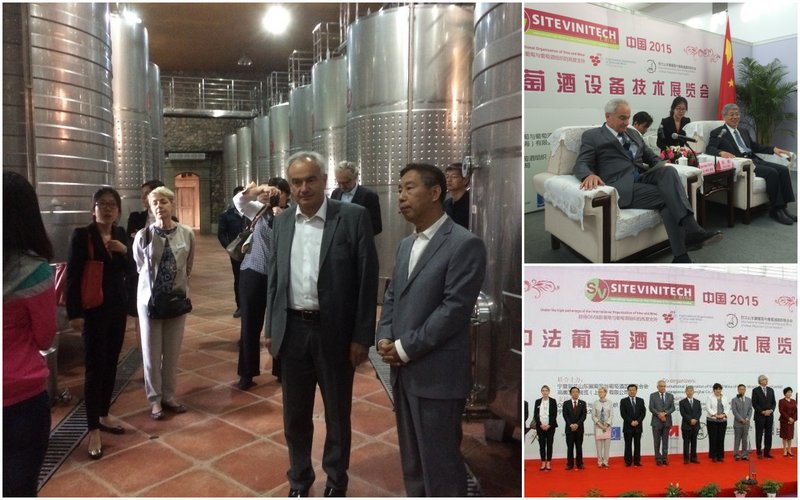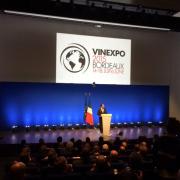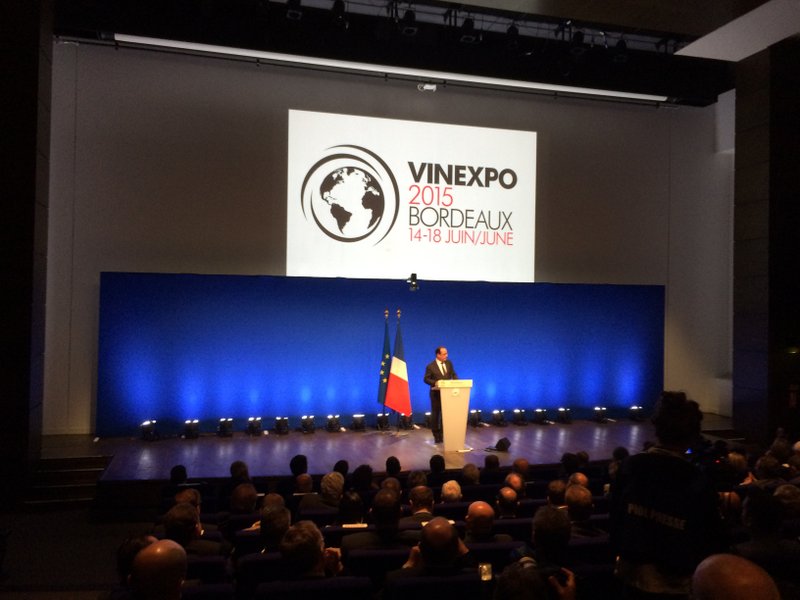
With more than 150 exhibitors and 200 makes of wine-growing equipment on show from 7 different countries, this exhibition held in the heart of one of China’s premier wine producing regions was a remarkable success.
The Director General of the OIV took part in the opening ceremony in the presence of Mr. Cui Bo, Vice Secretary of the Ningxia Committee, Mr. Hao Linhai, Vice Party Secretary of Ningxia People ´s Government and Mrs. Valérie Lobry, Director General of COMEXPOSIUM.
In his speech, he stressed the importance of this event in one of the most dynamic wine-growing areas in China.
With more than 35,000 ha of areas under vines (including 12,000 ha planted over the past 3 years) and an annual production of 100 million bottles of wine, Ningxia is flaunting its ambition, with the active interest and strong support of the local authorities.

The Ningxia Autonomous Region has Observer status in the OIV.
Both Mr. Cui Bo and Mr. Hao Linhai, who is, moreover, Chairman of the regional Winegrowers’ Federation, stressed their interest in developing collaboration with the OIV so as to strengthen expertise and continue improving the quality of their wines on the basis of OIV standards.
Jean-Marie Aurand also had talks with the Beijing Authorities, resuming the contacts made in 2014 with a view to bringing about closer institutional ties in the future between the Peoples Republic of China and the OIV.

“Wine is also a major sales item and it matters that people should know what it is, and what it is not – thus so much hangs on its correct definition,” said the French President, adding that “this is not only the responsibility of producers; consumers too need to be part of the process, and that is why an intergovernmental organisation was set up in 1924, the Organisation of Vine and Wine, which has its headquarters in France.”
Affirming that he wants “the OIV to be able to play its fullest possible part”, François Hollande noted that the Organisation brings together almost 50 Member States “and does a truly remarkable job.”
Addressing the representatives of the world vine and wine sector, the French President concluded: “We must widen the scope of the OIV – it is in our interest to do so – to include big countries like China or the United States.”
The 18th Vinexpo brings together in Bordeaux some 2400 exhibitors from 45 countries.

This salon, which is among the world’s foremost, strives to encourage international trade in wines and spirits, to foster knowledge of these products and to promote them.
Speech by François Hollande at the opening of the Vinexpo Exhibition (OIV Speech from 10’18 to 11’06).